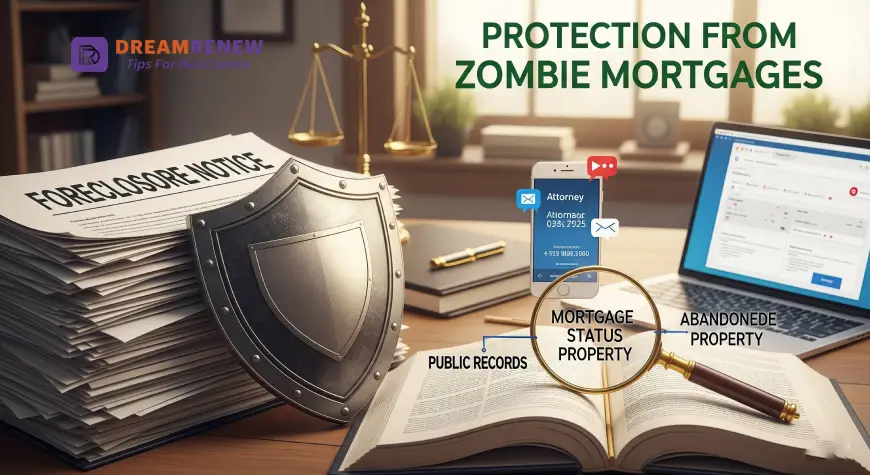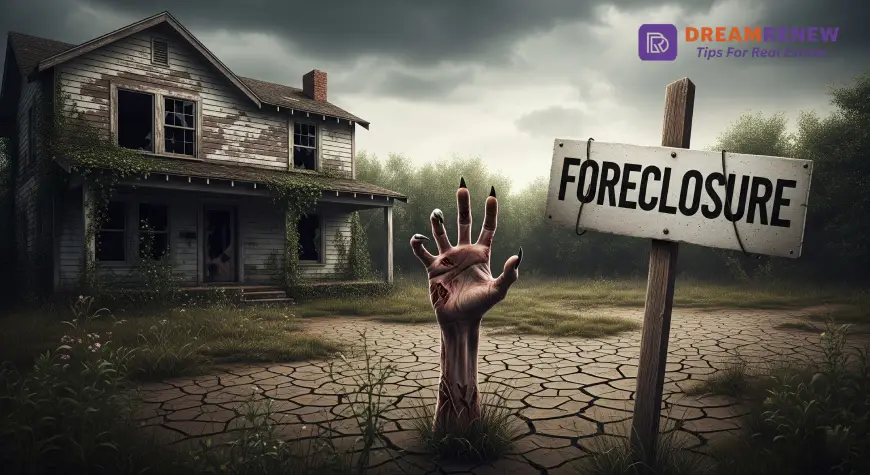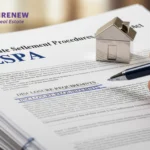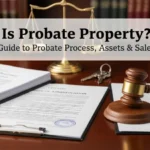In the ever-evolving landscape of real estate, one term that continues to cause confusion among homeowners, investors, and even industry professionals is the “zombie mortgage.” The term might sound like it’s straight out of a horror movie, but in reality, it refers to a very real—and very serious—issue in the housing and foreclosure market. In this article, we will explore what a zombie mortgage is, how it arises, its impacts on property owners, and what you can do to protect yourself from becoming a victim of one.
Understanding the Term “Zombie Mortgage”
A zombie mortgage refers to a situation where a homeowner believes their property has been foreclosed and is no longer their responsibility, but the lender never completed the foreclosure. This leaves the property in a legal limbo. The borrower may have vacated the home, thinking they no longer own it. At the same time, the title remains in their name, along with all the responsibilities of ownership—such as property taxes, maintenance, code violations, and liability.
In simple terms, a zombie mortgage is an undead mortgage—it seems gone, but it’s not. The home sits vacant, deteriorating, and dragging down neighborhood values, all while the original owner is still legally tied to it.
How Do Zombie Mortgages Occur?
Zombie mortgages typically arise from aborted or delayed foreclosure proceedings. Here’s how this scenario unfolds:
- Homeowner falls behind on payments.
- Lender initiates foreclosure.
- Homeowner vacates the property, believing foreclosure is imminent or already done.
- Lender halts the foreclosure, perhaps due to internal decisions, legal complexities, or external pressures.
- No new buyer is found, and no title transfer occurs.
- Property remains in the owner’s name with no notice or further communication.
Because public records may show an initiated foreclosure, the homeowner may reasonably believe they’re no longer the legal owner—only to later discover they are still financially and legally responsible.
The Devastating Impact of Zombie Mortgages
Zombie mortgages can have long-lasting, damaging effects on unsuspecting homeowners:
1. Financial Liabilities
Homeowners still legally responsible for the property may suddenly be hit with:
- Unpaid property taxes
- Municipal fines and code enforcement penalties
- Maintenance costs
- HOA fees
- Lawsuits from injuries on neglected property
These can accumulate silently over years, especially if the homeowner has relocated and is unaware.
2. Credit Damage
Even though the foreclosure was never finalized, late fees and unpaid obligations can still damage credit scores. Worse yet, if the zombie property is eventually sold at a loss, the deficiency might come back to haunt the original borrower.
3. Legal Complications
Some homeowners have faced lawsuits for code violations, trespassing, or unpaid taxes related to a property they assumed was no longer theirs. This legal ambiguity can become extremely difficult to unwind.
4. Emotional and Psychological Toll
For many, the stress of losing a home is traumatic enough. The realization that you’re still legally bound to a long-abandoned property only adds further mental and emotional distress.
The Role of Lenders and Foreclosure Practices
Zombie mortgages are often a byproduct of irresponsible or unclear foreclosure practices. Banks and mortgage servicers may choose to cancel or stall foreclosures for financial reasons. For instance, they might determine the cost of foreclosure exceeds the home’s value—especially in economically depressed areas.
However, without proper communication to the borrower, this practice leaves a vacuum of responsibility. In some cases, banks never notify borrowers that the foreclosure was canceled.
Where Are Zombie Mortgages Most Common?
Zombie mortgages tend to be concentrated in states with judicial foreclosure systems—where foreclosures must go through the courts. These states include:
- Florida
- New York
- Illinois
- Ohio
- New Jersey
Such states often have longer foreclosure timelines, and higher rates of abandoned proceedings, making them fertile ground for zombie titles.
How to Protect Yourself from a Zombie Mortgage

1. Monitor Public Records
Regularly check county property records to ensure your name has been removed from the deed if you believe your home was foreclosed. Do not assume the process was completed without confirmation.
2. Demand Written Confirmation
Always request written confirmation from your lender or servicer that the foreclosure has been finalized and that the title has transferred.
3. Consult a Real Estate Attorney
If you receive notices about a property you thought was no longer yours, consult an attorney immediately. Early legal intervention can mitigate fines and protect your credit.
4. Stay in Communication With Lenders
Even if you’ve vacated the property, continue to track communications from your mortgage company or servicing agency. Ignoring notices can deepen the problem.
5. Obtain a Release of Liability
In some cases, lenders might agree to issue a release of liability or a deed in lieu of foreclosure. This formally severs your legal ties to the property.
What to Do If You Are a Victim of a Zombie Mortgage
If you’ve discovered you’re still responsible for a foreclosed property:
- Review all foreclosure documentation you received.
- Pull your title report from the local recorder’s office.
- Check your credit reports for updates on the mortgage status.
- Reach out to the mortgage servicer for clarification.
- Seek legal advice to determine next steps, including the possibility of quiet title actions.
Conclusion: Don’t Let a Zombie Mortgage Haunt You
Zombie mortgages are a hidden danger in the real estate world—a ghost of a loan that appears dead but still binds the homeowner to legal, financial, and emotional consequences. By staying informed, vigilant, and proactive, you can avoid becoming the victim of a zombie mortgage, or deal with one before it wreaks havoc on your life.
Knowledge is your strongest defense in this complex housing landscape. Always seek professional advice and don’t assume foreclosure automatically frees you from responsibility.
Frequently Asked Questions (FAQs)
Why do lenders not complete the foreclosure process?
Lenders might stop the foreclosure if the cost of taking over and maintaining or selling the property exceeds its value. They may also pause proceedings due to legal issues or internal restructuring.
Can I be sued for a zombie property I abandoned years ago?
Yes. Since you are still legally the property owner, you may be liable for property taxes, fines, and even personal injury lawsuits resulting from incidents on the premises.
How can I find out if my name is still on a property title?
You can search property ownership records at your local county recorder’s office or through online property records databases. It's essential to verify that your name has been legally removed from the title.
Is it possible to remove myself from a zombie mortgage?
Yes, but the process can be complex. It often involves legal action such as a quiet title suit, or negotiation with the lender to accept a deed in lieu of foreclosure. Consulting a real estate attorney is the best course of action.
Do zombie mortgages affect my credit?
Yes. Since the mortgage is technically still active, missed payments and accumulating fees can significantly impact your credit score, even years after you thought the foreclosure was completed.




